每日观察:关注2011年中国在线游戏产值达66亿美元(3.30)
1)Pearl Research最新报告指出,中国在线游戏市场规模在2011年收益增长32%,达到66亿美元(游戏邦注:Pearl Research对在线游戏的定义包括MMO、休闲游戏、社交游戏及网页游戏)。
腾讯、网易、盛大、搜狐畅游和完美世界这五大主流游戏公司占据了其中的53亿美元,预计2014年中国在线游戏市场规模将达92亿美元。
2)Kabam近日宣布收购社交游戏开发商Gravity Bear,包括其角色扮演战斗MMO游戏《Battle Punks》等一切资产,以便借助后者开发经验向3D社交游戏领域进军。
据其所称,Gravity Bear团队正投入开发一款基于《Battle Punks》的新款动作MMO游戏,该游戏采用Adobe的3D Stage技术,支持玩家无需插件就能体验游戏。
Gravity Bear由Flagship Studios联合创始人Phi Shenk于2008年成立,Phi Shenk之前在暴雪北方和Maxi公司担任要职,现在他将加入Kabam继续领导Gravity Bear团队。
3)据games.com报道,Zynga首席执行官Mark Pincus最近获得《时代杂志》2012年度影响力最大的100位名人的提名(《生化奇兵》设计师Ken Levine也进入提名榜单)。但不幸的是,《时代杂志》100位名人的民意调查结果显示,超过73%的投票者认为Pincus没资格获评,与此同时,高达85%的投票者认为Ken进入该名单是“毋庸质疑”的事情(游戏邦注:投票截止时间是4月6日)。
4)据Zynga招股书说明显示,公司二次股票发行中将有近半数股票销售来自Zynga管理层和董事会成员。Zynga股票持有人将在二次股票发行中售出4300万股;除了近日以12美元交易的A级普通股之外,Zynga高管和董事会成员还将售出2025万4631份B级股(此类股票在所有股东中的投票权占70.3%),这是Zynga高管首次获准出售B级股。
Pincus将出售1650万B级股,占其在公司股权的近15%;首席运营官John Schappert将出售32万2350股,约占其持有股票的45%;首席技术官David Wehner将套现38万6865股,约占其股票的55%。董事会成员Reid Hoffman将出售68万7626股,接近其持有股票的15%;Owen Van Natta将出售50万5267股,将近其持有股票的19%。
5)Unity近日宣布将开发一款新工具,支持Unity游戏开发者创建让玩家通过Flash就能访问3D网页游戏。在此之前,基于Unity的社交游戏由于需要下载额外插件,因此常常难以吸引更多用户。
现在Unity已致力于提供解决方案,再加上新版Flash Player所推行的Stage 3D技术,相信玩家体验无插件的3D网页游戏很快就会成为现实。(本文为游戏邦/gamerboom.com编译,拒绝任何不保留版权的转载,如需转载请联系:游戏邦)
1)China’s online games market valued at $6.6B in 2011, says report
by Tom Curtis
Newsbrief: The online games market in China is still seeing impressive growth, as the market saw revenues increase 32 percent to $6.6 billion in 2011, reports analytics firm Pearl Research.
Although the firm’s broad definition of online games includes MMOs, casual games, social games and web games, the report noted that the vast majority of the market’s revenue came from the leading five game companies.
The firm said that $5.3 billion of the total $6.6 billion came from major developers and publishers such as Tencent, Netease, Shanda Games, Changyou, and Perfect World.
Looking into the years ahead, Pearl Research projected that China’s online games market could see revenues of $9.2 billion by 2014.(source:gamasutra)
2)Kabam buys 3D social game maker Gravity Bear
by Eric Caoili
Core-targeted social game developer Kabam (Dragons of Atlantis) has acquired Gravity Bear, the Emeryville, CA-based company established by Flagship Studios co-founder Phil Shenk. Terms for the purchase were not disclosed.
With this deal, Kabam will now take over a team that has experience developing 3D social games (its previous releases were all 2D), as Gravity Bear previously worked on Battle Punks, an action-based MMO that launched in 2010 but is no longer available on Facebook.
Redwood City, CA-headquartered Kabam says absorbing Gravity Bear will expand its traditional strength in strategy titles to a broader range of core free-to-play gamers. They’re already working together on a new 3D-accelerated social game set in the Battle Punks universe.
Gravity Bear began working on the new game more than a year ago — presumably not long after it took the original Battle Punks offline. The game is built on Adobe’s 3D Stage technology, and will not require any plug-ins beyond Flash to play.
Shenk founded Gravity Bear in late 2008, after working at Flagship Studios (Hellgate: London) as an art director. Before that, he held key art positions at Blizzard North and Maxis. He will continue to lead the Gravity Bear team under Kabam.(source:gamasutra)
3)Zynga founder’s chances of getting into the TIME 100 don’t look so hot
by Joe Osborne
TIME Magazine’s annual TIME 100 recognizes the year’s 100 most influential people for various reasons. Surprisingly enough, given our culture, game designers are frequently mentioned in the list. This year, however, it features not a game designer, but a game company owner: Mark Pincus, CEO and founder of Zynga. (Well, BioShock designer Ken Levine is featured, too.)
The two are basically the exact opposite when it comes to roles and goals in the gaming world. One is interested in seeing how many people he can get into games, no matter the cost, while the other is interested in creating games with profound effect. However, they might be more alike than you think. For one, they’re both perfectionists, extremely dedicated to their mission no matter how much they differ.
Thing is, unfortunately, Pincus gets more a bad rap than a good one, and it shows in his current standing in the 2012 TIME 100 Poll. As of this writing, over 73 percent of voters think there’s no way Pincus should be included in the list. Levine, on the other hand, has a whopping 85 percent of voters sitting in the “Definitely” camp. It’s hard to say exactly why this is, in Pincus’s case, but perhaps more people agree with folks like Shay Pierce than we think. You have until April 6 to vote.(source:games)
4)Zynga execs selling over 20M shares in secondary offering
Mike Thompson
Nearly half of all the shares sold in Zynga’s secondary stock offering will becoming from Zynga’s executives and directors, according to the written prospectus regarding yesterday’s share pricing.
The secondary offering will see holders selling almost 43 million shares of Zynga. Aside from the Class A common stock, which was priced yesterday at $12 a share, the developer’s executives and directors are unloading 20,254,631 shares of Class B stock, which carries 70.3 percent of total shareholder voting power. This is the first time these executives have been able to sell their Class B stock.
Pincus is selling 16.5 million Class B shares, approximately 15 percent of his stake in the company. COO John Schappert is selling 322,350 shares, about 45 percent of his holdings. CFO David Wehner is cashing in on 386,865 shares, almost 55 percent of his stock. Directors Reid Hoffman and Owen Van Natta are also cashing in — Hoffman is selling 687,626 shares, just under 15 percent of his stock and Van Natta is selling 505,267 shares, nearly 19 percent of his holdings.
The secondary offering’s timing is geared towards counteracting the approaching end of Zynga’s lock-up period — when all outstanding shares other than those sold during the IPO can’t be traded — which is set to expire on May 28. Both the lock-up period’s end and Facebook’s own expected IPO in May could influence Zynga’s stock prices dramatically, so putting this many shares on the market will theoretically minimize any potential volatility.
It’s only been four months since Zynga’s IPO, which was a mixed success. Although the developer raised the $1 billion it was hoping for, the stock fell below its initial $10-per-share and didn’t recover for a month. The stock has performed erratically since then and seen substantial gains and drops, though the revelation that Zynga accounted for 12 percent of Facebook’s 2011 profits helped buoy prices.
Zynga’s stock opened this morning at $12.26 a share, continuing a week-long price slip since the company announced its acquisition of Draw Something developer OMGPOP for $180 million.(source:insidesocialgames)
5)Flash and Unity unite to make 3D Flash games better (and a few bucks)
by Joe Osborne
Flash and Unity, the two leading (and competing) technologies for 3D web game creation, have joined forces. Unity has announced that it will make a tool for Unity game developers to create 3D browser games that players can access using Flash. Since Flash is essentially ubiquitous on browsers everywhere–yes, even the iPhone–this means Unity will soon have zero barrier to entry.
Before this announcement, Unity-based social games on networks like Facebook had trouble gaining traction due to the need for an additional download. Soon, that problem will officially be behind it, and that can only bring Unity to more gamers in the long run. This is especially considering the new Flash Player was released recently, touting its Stage 3D technology.
But here’s the thing, Flash creator Adobe also wants to take full advantage of this golden opportunity: Lots of 3D game makers, even Gears of War creator Epic Games, are all over this space. From this day forward, Flash will impose a 9 percent tax, if you will, on all revenue made directly from games and apps created or played using Flash. This move essentially turns Adobe into an App Store, Facebook or Google Play.
With that, Adobe stands to make lots–and we mean lots–of cash, especially since it’s asking price is only bested by the 5 percent tax game makers pay on Google+. And since there are numerous social gaming and monetization networks out there, you have to wonder whether this sends Facebook shaking … at least a little bit.(source:games)

























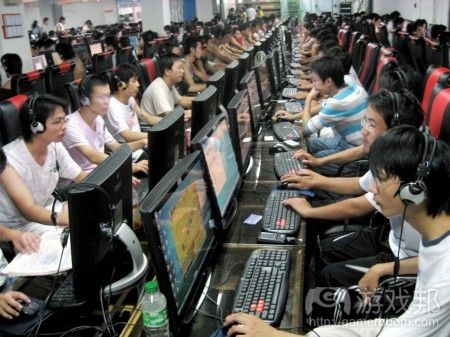
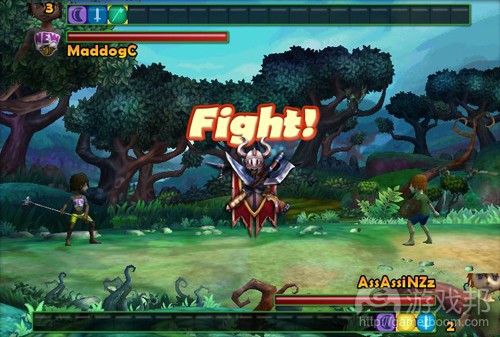
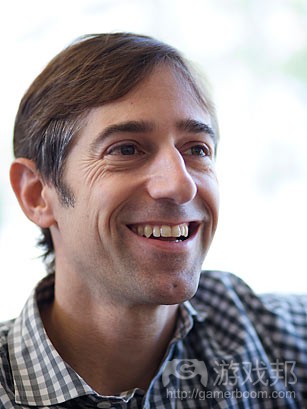
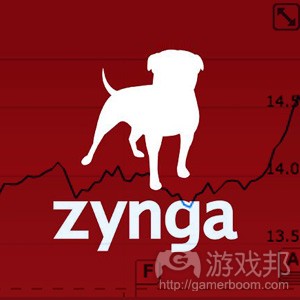
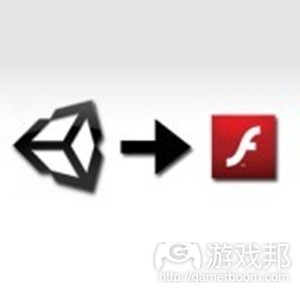














 闽公网安备35020302001549号
闽公网安备35020302001549号